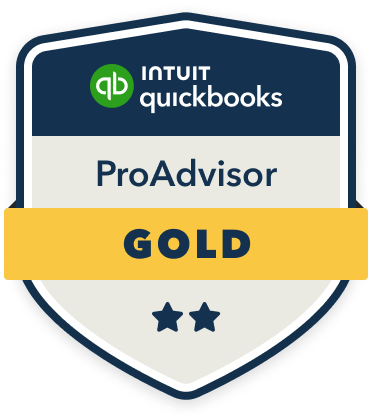Whatever type of business you run, whether a small business, a startup, a construction firm, or a restaurant, you know well that your company’s financial statements matter a lot. Keeping your financial reports accurate involves making sure that the records of your invoices, receipts, and other important documents are up-to-date – this is where standardized procedures help.
One time-consuming yet necessary task that you (if you’re a one-person show) or your accounting team should accomplish is the month end close process. Having this process streamlined, you can properly manage your finances, stay on top of your company’s numbers, and can help propel you to achieving your business goals.
In this article, we’ll talk about the month end close process, why is it significant, and how it’s done. If you find this task tedious and overwhelming, read our guide to help your month end close process quicker and less painful.
What is a month end close process?
A month end close process is simply a series of steps done every end of the month that involve collating and filing all the financial and accounting information of the business. Its purpose is to have these data ready for review, reconciliation, and reporting.
To make sure that you have all the financial data for the month, the information that you should have for your month end close process are:
- Income and expense
- Bank statements (credit card, loan statements)
- Accounts receivable
- Accounts payable
- General ledger
- Inventory and fixed assets
- Accrual and prepayments
- Financial statements (income statement, balance sheet, cash flow statement)
Why is the month end close process important?
Naturally, the most vital closing period takes place at the end of the financial year; however, it’s also important for a business to track its finances daily, weekly, or at least monthly.
Businesses that want to make sure that their financial reports remain accurate should close their books and set their records in stone at the end of each month. Other benefits of the month end close process are:
- Catch discrepancies and errors in your accounts
- Keep a pulse on the company’s financial health
- Get accurate financial information
- Make informed business decisions
- Save time on catch-up bookkeeping
- Keep your records audit-ready
- Prevent future accounting mistakes
- Easier tax filing (stress-free end of financial year)
How is a month end close process done?
The month end close process should not be overwhelming. With a system in place, you or your financial team can follow the correct steps to deal with your company’s financial records every end of the month, which will create a positive impact on the business as a whole.
Note that each month end close process will vary from business to business, depending on the type of accounts and transactions that make up the company’s financial data. You can use this checklist as a guide to help you establish your month end closing workflow.
miplly’s 7-Step Month end Close Process
1. Record all income received during the month
- Record cash and invoices
- Include other income sources (e.g. rental income, debt repayments made to you, income from investments)
- Review if the invoices sent to your clients are accurate and if there are any missing
2. Review accounts payable
- Track your expenses throughout the month
- Some expenses that you should record are:
> payments to suppliers
> payroll
> utility bills
> insurance
> travel expenses
> loan interest
> other expense reports
3. Reconcile all accounts (a.k.a. accrual process)
- Prepare bank reconciliation to compare financial records with your company’s bank account
- Check ending balances, withdrawals and deposits in your bank statement vs your cash book
- Keep an eye out for discrepancies
- Make adjusting journal entries to make sure all transactions within the period are properly recorded
4. Review petty cash fund
- Check petty cash at the beginning and end of the month
- Reconcile receipts and deposits
- Look into discrepancies
5. Review inventory and fixed assets
- Count inventory
- Check and update inventory numbers
- Track all purchases, sales, and improvements of fixed assets
- Account for depreciation
- Count amortization expenses
- Account other expenses (e.g. maintenance, repairs)
- Check the condition of fixed assets
6. Organize financial statements
- Prepare income statement (a.k.a. profit and loss statement)
- Prepare balance sheet
- Prepare cash flow statement
- Have an accountant review your financial statements to help you analyze and provide insights from these data
7. Reassess and Plan
Finally, and probably one of the most important steps in a month end close process is to realize the learnings that you got from closing your books for the month.
> What worked and which ones need improvement?
> Are there changes you can do to address recurring issues?
> Are there any problems that could be solved immediately?
> How is the business fairing when it comes to achieving its long-term goals?
Consider seeking help to solve the issues that you identified. For example, if you see yourself or your staff struggling to keep your books updated (therefore making the month end close process more challenging), you can hire online bookkeeping services.
Tips for a More Efficient Month end Close Process
Set a goal – Set a target on how long it should take you or your team to complete the month end close process. Having a deadline will help everyone work more efficiently. Note that it usually takes an average of seven to ten days to accomplish all month end closing tasks.
A reminder, however, that you shouldn’t sacrifice quality for speed, or else you might risk making costly errors. Take your time, but don’t delay it too much.
Maintain records updated – The key to a less tedious month end close process is of course to have your records properly kept – it is also the foundation of a good accounting system. When your financials are up to date, you save time and effort when you’re closing at the end of the month.
Need help keeping your books updated? Learn more about catch up bookkeeping services
Embrace automation – Sure, Excel bookkeeping might work for sole proprietors or some small businesses; however, as the business grows, you want to make sure that your accounting processes can also upscale. With reliable accounting software, you can automate processes (e.g. generating financial statements and bank reconciliations) saving you a lot of time.
Outsource your finance team – What’s the easiest way to complete a month end close process? Hire the assistance of an experienced accounting team so you can delegate the month end close process plus other tasks to them. This will allow you to focus more on your business and give you the assurance that your company’s financial activities are in experts’ hands.
miplly can do the dirty work for you. When you sign up with us, you can expect that your books are expertly done, your monthly financial statements are accurately updated, your accounts are reconciled, plus you’ll have a good sense of your company’s overall financial health.
See how our monthly bookkeeping services work. Start your 30-day free trial today!
Our Services:
Catch Up Bookkeeping Services
Monthly Bookkeeping Services
Small Business payroll Services
Construction Bookkeeping Services
Areas we Serve:
Bookkeeping Services in San Diego
Bookkeeping Services in Los Angeles


Comments are closed.